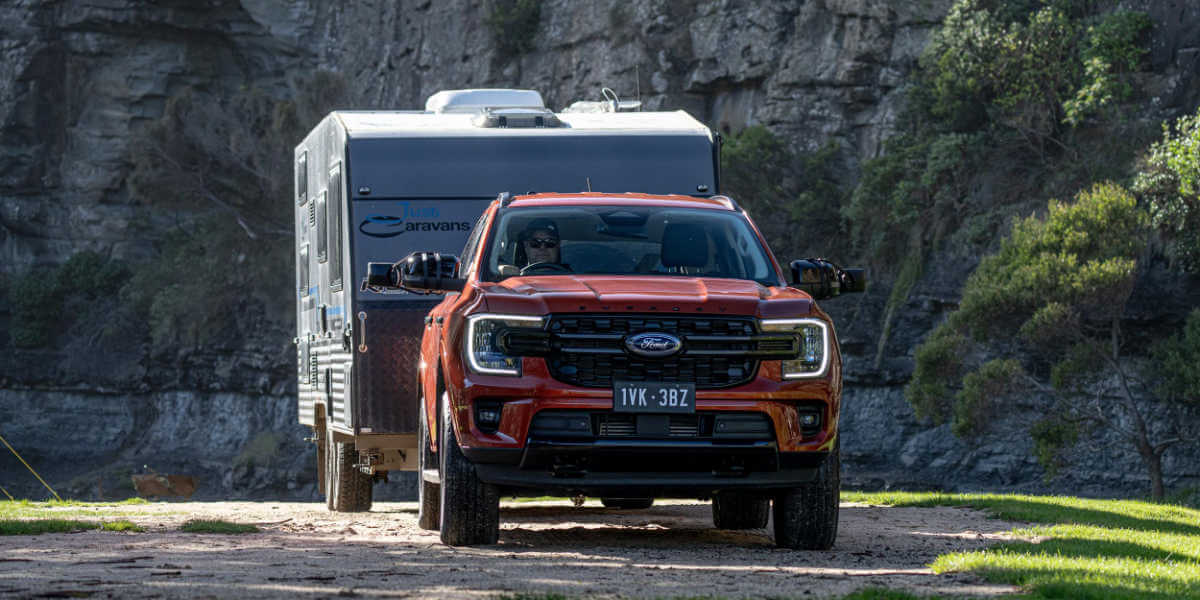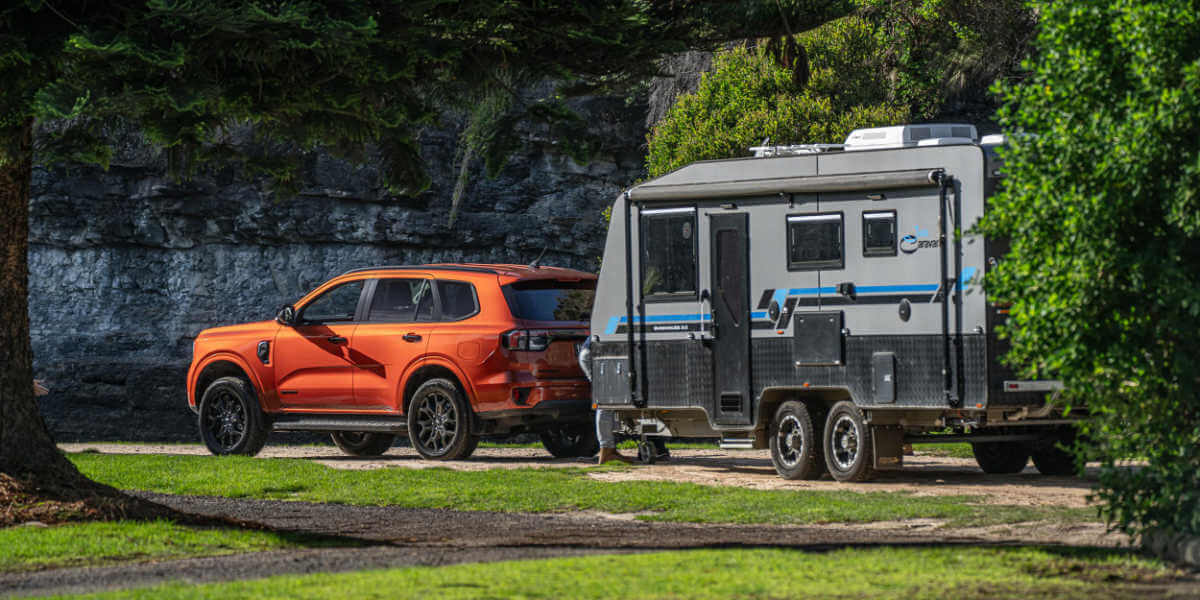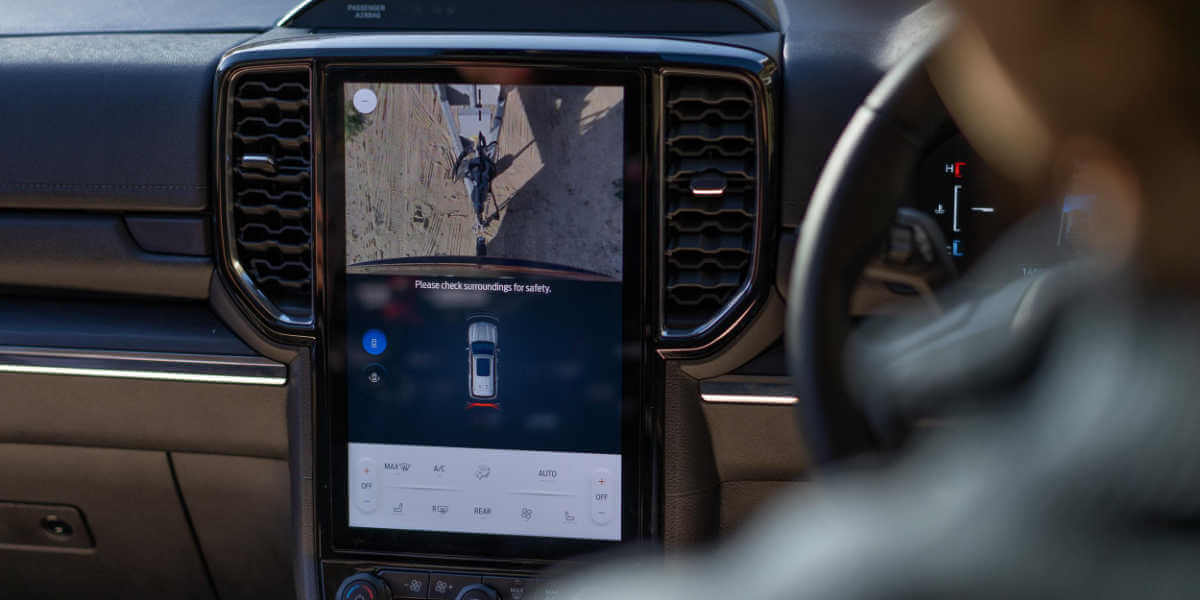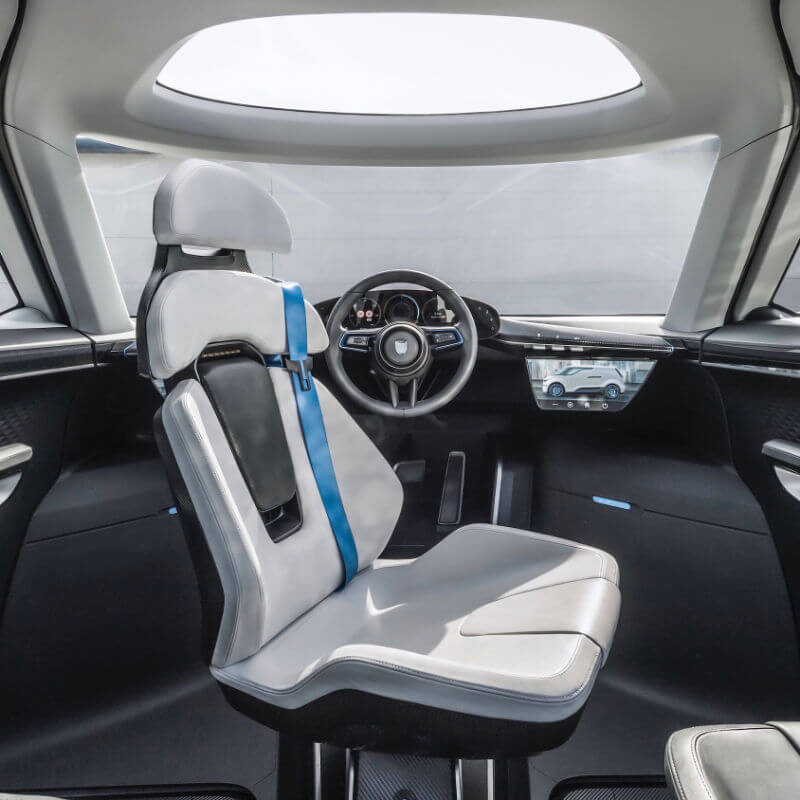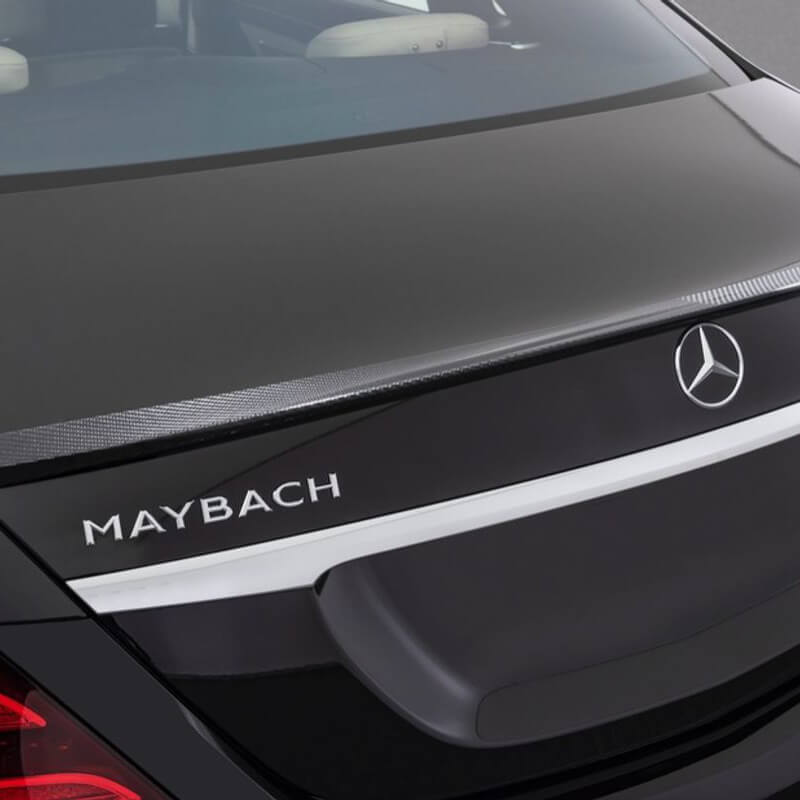Ford Everest’s Towing Tech Makes Hitching and Hauling Your Gear Easier
For adventurers who need to tow, the Ford Everest’s rugged capability, innovative technologies and smart safety features make hitching and hauling a trailer or caravan easier, safer, and more convenient than ever.
Everest’s go-anywhere capabilities and class-leading 3,500 kg towing capacity mean owners can take everything they need to make their next adventure epic. And, with more towing technology on hand to make light work of lugging heavy loads, owners can spend more time exploring the great outdoors with confidence.
“Ultimate towing performance is absolutely essential for thousands of adventure-craving owners,” said Rob Hugo, dynamic experience supervisor for Ranger and Everest, Ford Australia. “We’ve designed and engineered the Everest to enable them to do more of what they love – whether that means hitching up a boat trailer for a weekend on the water, or a camper or caravan to get away for a few days.”
“We’ve really focused on features that help flatter the novice and assist the expert to conquer any towing challenge with ease. We’ve made the systems easy and intuitive to use so that owners can simply enjoy the drive,” Hugo said.
Hitching made easy.
Regardless of experience, hitching a tow vehicle and trailer can be tricky – and often stressful – if others are watching and waiting. Whether alone or with a spotter, lining up to hitch a trailer can be a tension-filled ordeal, trying to perfectly position the tow ball under the trailer hitch receiver.
Everest makes hitching simple. The 360-degree camera’s top-down view helps guide the Everest close to the trailer, while a reverse view with dynamic lines and distance guides helps line up the tow ball and receiver. For ultimate pinpoint accuracy, the hitch view button provides a bird’s-eye view of the tow ball and receiver.
Checking everything.
Everest’s trailer connection checklist provides a handy step-by-step reference guide for towing novices and seasoned pros. Integrated into the SYNC system, it walks owners through the steps required to safely connect the trailer before setting off. Owners can also check that their trailer lights are working without the need for a spotter – by either pressing a button on the SYNC screen, or by using their FordPass app.
The system will run a test pattern of the taillamps, brake lights and indicator lights, cycling through the pattern five times, to give owners plenty of time to confirm everything is working properly before setting off.
Confidence on the move.
Hauling a trailer for the first time can be intimidating – but Everest’s capability and safety features are designed to make towing a little easier.
The dedicated Tow/Haul drive mode ensures Everest provides the best balance of power and control for the driver. It holds gears longer to help maintain power delivery when needed and will help provide engine braking when driving in hilly areas. It also increases resistance on the steering wheel for better control and comfort.
For more confidence when braking, Everest comes fitted with a trailer brake controller, which works with the electric brakes on the trailer. It adapts its output based on Everest’s brake pressure, working with the anti-lock brake system (ABS) to compensate for changing traction conditions, reducing the risk of trailer brake lockup under heavy or sudden braking.
Trailer Sway Control.
Everest’s innovative new trailer sway control is another piece of technology that works away in the background to help owners tow with more confidence.
The system works with Everest’s electronic stability control system to monitor performance while towing. If the trailer begins to sway from side to side, the system will warn the driver to slow down and, if necessary, apply brake pressure to individual wheels on the Everest – and apply the trailer brakes – to eliminate the issue. It will even reduce engine power to help the driver regain control.
BLIS with trailer coverage.
For added peace of mind and safer driving, Ford’s blind spot information system (BLIS) now includes coverage, helping you to change lanes with more confidence. The system is designed to work with trailers up to 2.4 metres wide and up to 10 metres long (from the rear of your Everest). BLIS uses radar sensors to monitor adjacent lanes for vehicles and inform you of any hazards. You’ll need to create a profile for your trailer by following the prompts on the SYNC touchscreen.
Article bt: Ford

